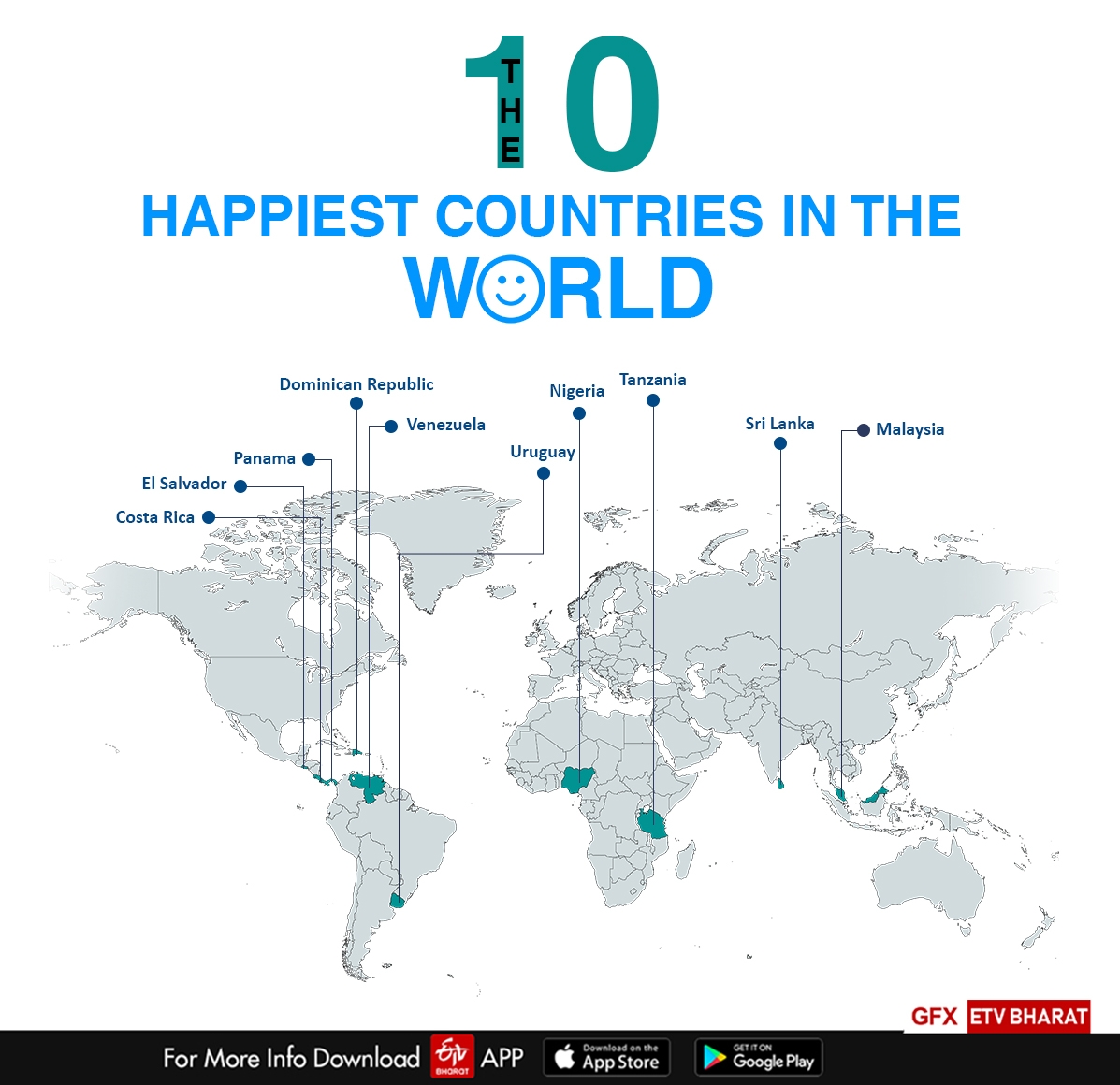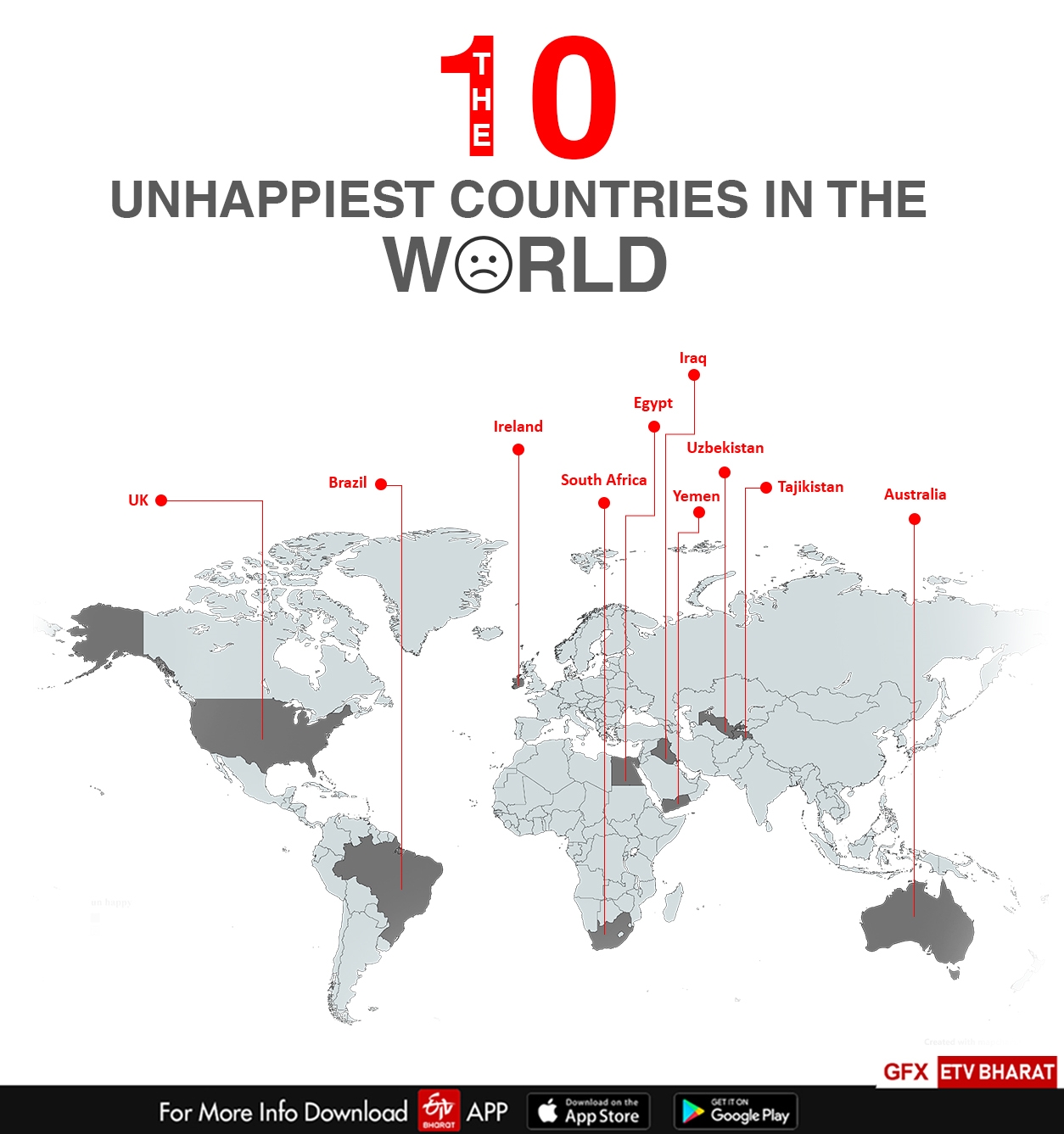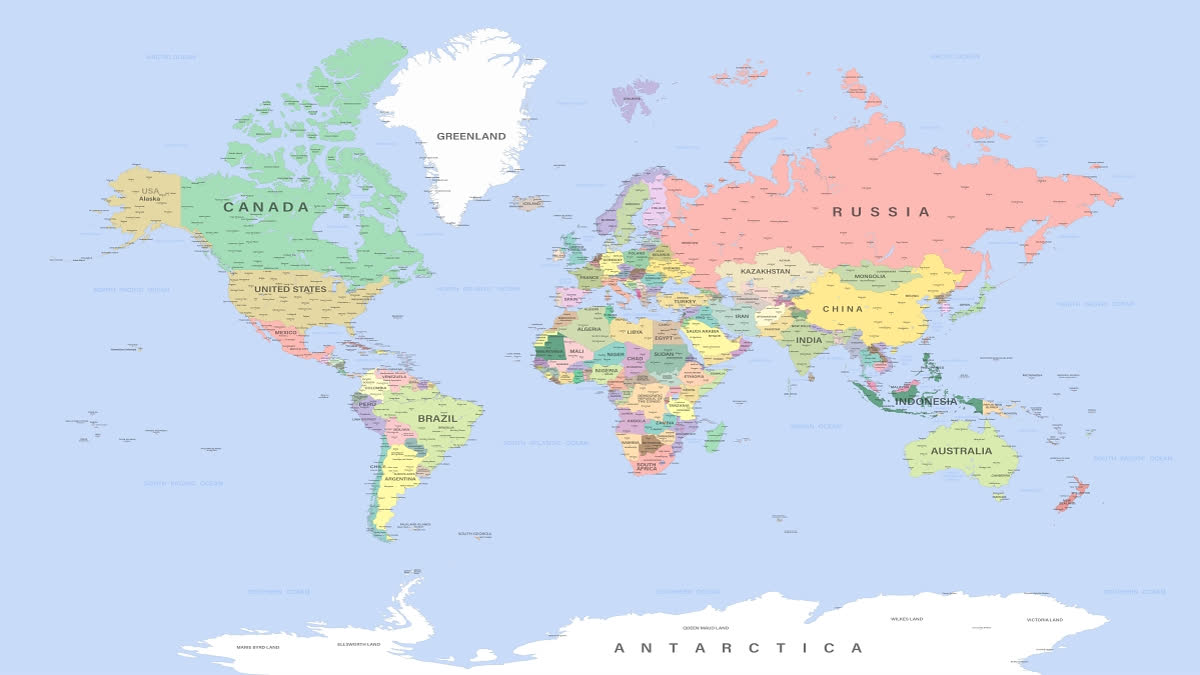Hyderabad: The COVID-19 pandemic certainly had some lasting effects, not just on the body but the mind as well. Mental health seems to have taken the worst hit.
A global mental health report of 71 countries across the world shows, we are yet to reach our pre-pandemic level of mental well-being and happiness. The report says, we are yet to get back to the way we would interact, socialise and even deal with people both at professional and personal levels.
The worst hit according to the report is the younger population- those under 35 for them the effects are pretty lingering. The elderly population, which comprises people over 65 years of age are more steady.

This was revealed as part of the Mental State of the World Report, an annual publication of the Global Mind Project that provides a view of the evolving mental wellbeing of the global Internet-enabled population. Each year the report presents the mental state of populations over the year, trends relative to previous years, and insights into key drivers of these trends. In addition, Rapid Reports published throughout the year provide insight and perspectives on various aspects of mental well-being based on the data.
The 2023 Report, which was released a few days ago is based on 419,175 responses from 71 countries in 13 languages. The assessment aims to find an individual’s Mental Health Quotient (MHQ), which evaluates 47 aspects of mental health, in six main categories: mood and outlook, social self, drive and motivation, mind-body connection, cognition and adaptability and resilience.

The survey also collects info on people’s lifestyle, dynamics with family and friends, and personal traumas. Based on their responses, people were given a score and placed on a spectrum, from thriving to distressed.
Key take away from the report this year are
Mental well-being remained at its post-pandemic low with yet again no sign of movement towards pre-pandemic levels. In 2023, at both a global level and at the level of individual countries, MHQ scores remained largely unchanged relative to 2021 and 2022, after a sharp drop during the pandemic years. This raises important questions about the lasting impact of the pandemic, and how shifts in the way we live and work and the amplification of existing habits (e.g. remote working, online communication, consumption of ultra-processed food, use of single- use plastics) have cumulatively pushed us into a space of poorer mental well-being.
Younger generations, particularly those under age 35, saw the steepest declines in mental well-being during the COVID-19 pandemic while those over 65 stayed steady. With these declines persisting across all age groups, the pandemic amplified a pre-existing trend of poorer mental well-being for younger generations that is now visible across the globe.
As in previous years, several African and Latin American countries topped the country rankings, while wealthier countries of the Core Anglo-sphere such as the United Kingdom and Australia are towards the bottom. This pattern suggests that greater wealth and economic development do not necessarily lead to greater mental well-being. In 2023, data from the Global Mind Project identified key factors that explain these patterns, such as getting a smartphone at a young age, frequently eating ultra-processed food and a fraying of friendships and family relationships, that are typically more prevalent in Internet-enabled populations of wealthier countries.
So who are the world's happiest people
Dominican Republic gets the top spot, where the average MHQ is 91 out of 300. The surprise is Sri Lanka at number two. In-spite of the political and financial turmoil it scored 89, and Tanzania which scored 88 is third.
Unhappiest countries
There are some surprises here. The other end of the chart is Uzbekistan at 48, closely followed by United Kingdom at 49. South Africa, Australia and Egypt are also in the list.
State of India
India is at 61st position just managing to stay out of the worst ten. Neighbouring Pakistan is doing a little better at rank 58. India is also seventh on the distressed and struggling list.
Drive and motivation/resilience scores
Across all dimensions, Adaptability & Resilience and Drive & Motivation scored highest across most countries while Mood & Outlook and Social Self scored lowest. While aggregate scores for each of the six dimensions across individual countries broadly followed the trend of overall MHQ scores, there was also some heterogeneity in the rankings for individual dimensions indicating that countries vary in their mental wellbeing profiles.
In Drive & Motivation scores while India, Pakistan and Kazakhstan had higher scores compared to similarly ranked countries. Similarly Adaptability & Resilience scores for Canada, Germany, Ireland, Australia, South Africa and the United Kingdom were lower compared to similarly ranked countries. In addition, the United States had lower Mind-Body Connection scores compared to similarly ranked countries while India, Pakistan and Bolivia showed higher scores for this dimension
Mental well-being dimensions across countries
The ten happiest countries in the world
- Dominican Republic
- Sri Lanka
- Tanzania
- Panama
- Malaysia
- Nigeria
- Venezuela
- El Salvador
- Costa Rica
- Uruguay
The ten unhappiest countries in the world
- Uzbekistan
- UK
- South Africa
- Brazil
- Tajikistan
- Australia
- Egypt
- Ireland
- Iraq
- Yemen



